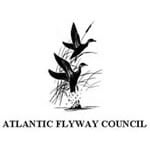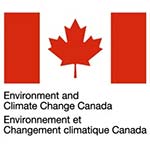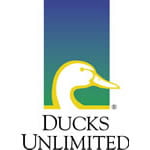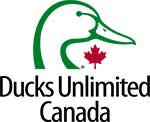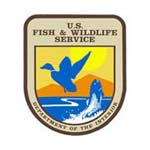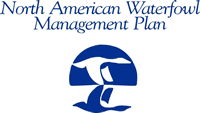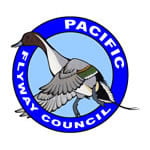Sea Duck Joint Venture
Sea ducks are a large group of waterfowl that, relative to other waterfowl species, we know little about.
Some sea duck populations are declining or have lower numbers than they did historically, and they depend on sensitive coastal, arctic, and boreal habitats throughout the continent.
About the Sea Duck Joint Venture
We are a bi-national conservation partnership of organizations committed to maintaining sustainable populations of North American sea ducks throughout their ranges.
We promote the conservation of North American sea ducks through partnerships by providing greater knowledge and understanding for effective population and habitat conservation and management.
News
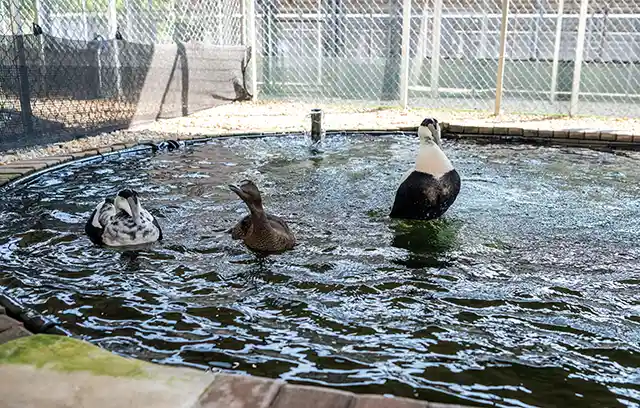
Evaluating the Pathogenesis of Avian Influenza Virus in Priority Sea Ducks (Common Eider, Surf Scoter) – USGS Eastern Ecological Science Center
The Sea Duck colony at the Eastern Ecological Science Center in Laurel, MD, is the only facility of its kind in the United States. Pictured are two male and one female Common Eiders floating in their pond. The Eastern Ecological Science Center (EESC), formerly the...
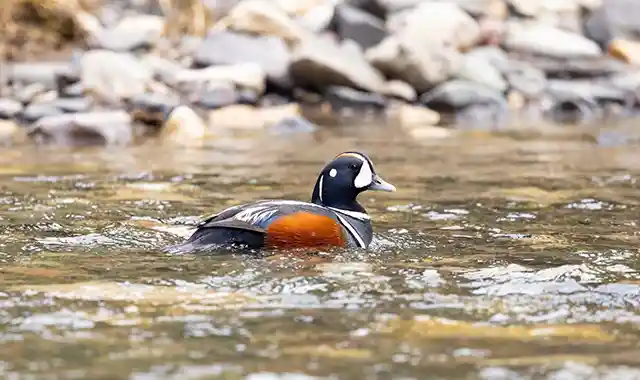
Migratory patterns of the western North American Harlequin duck population throughout the annual cycle
Harlequin Duck, Credit: NPS, Jacob W. Frank Harlequin Ducks can be found across North America, split into two distinct populations, one on the West Coast and one on the East Coast. In the west, the species nest in remote, mountainous, rushing streams in dense forests...

Unifying the coast: Advancing image-based surveys to support sea duck conservation along the Pacific Flyway
Sea ducks can be a difficult species to study. From their remote breeding sites to their long-distance migrations, frequent movements, and use of many habitats, they can be hard to find, and even more difficult to monitor. For years, scientists have approached sea...
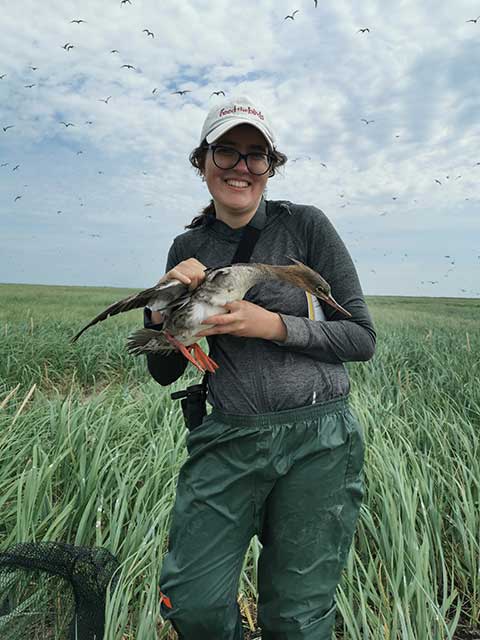
SDJV Student Fellowship Feature: Emily Burt, Ecological, social, and evolutionary factors that promote conspecific brood parasitism in the Red-breasted Merganser
Emily with a Red-breasted Merganser Emily Burt attends McGill University, where she is a PhD student studying Red-breasted Mergansers. Her research investigates the ecological, social, and evolutionary factors that lead to and promote conspecific brood parasitism in...
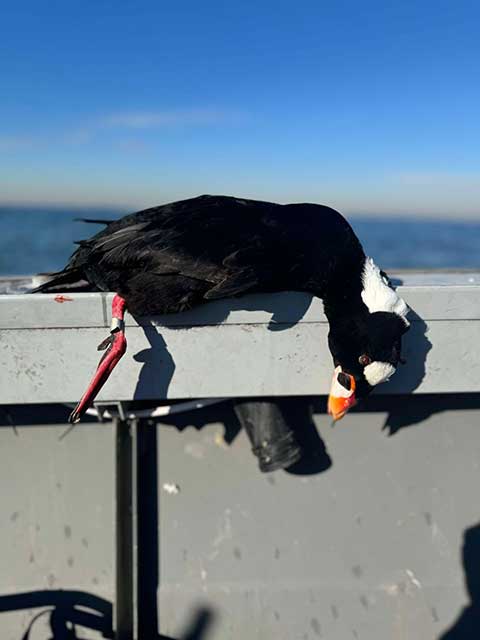
From Labrador to New Jersey: The Journey of a 22-Year-Old Surf Scoter
New Longevity Record for Surf Scoters An 18ft aluminum boat glides quietly over the waves with five good friends on board. The sun is high, the sea is calm, and there is a gentle breeze. The group of hunters sit, intently watching their decoys bob and surf the light...
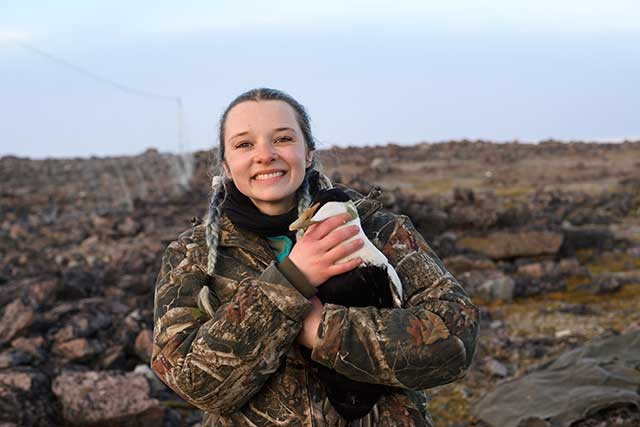
SDJV Student Fellowship Feature: Shayla Kroeze, Understanding cholera immunity in Common Eiders in the Canadian Arctic using whole genome analysis
Shay holding a Common Eider, Credit: Daniel Giesbrecht Shayla (Shay) Kroeze is a Ph.D. student at Queen’s University, co-supervised by Dr. Vicki Friesen and Dr. Grant Gilchrist. She completed her B.Sc. (Honours) and her M.Sc. at the University of Western Ontario. Her...
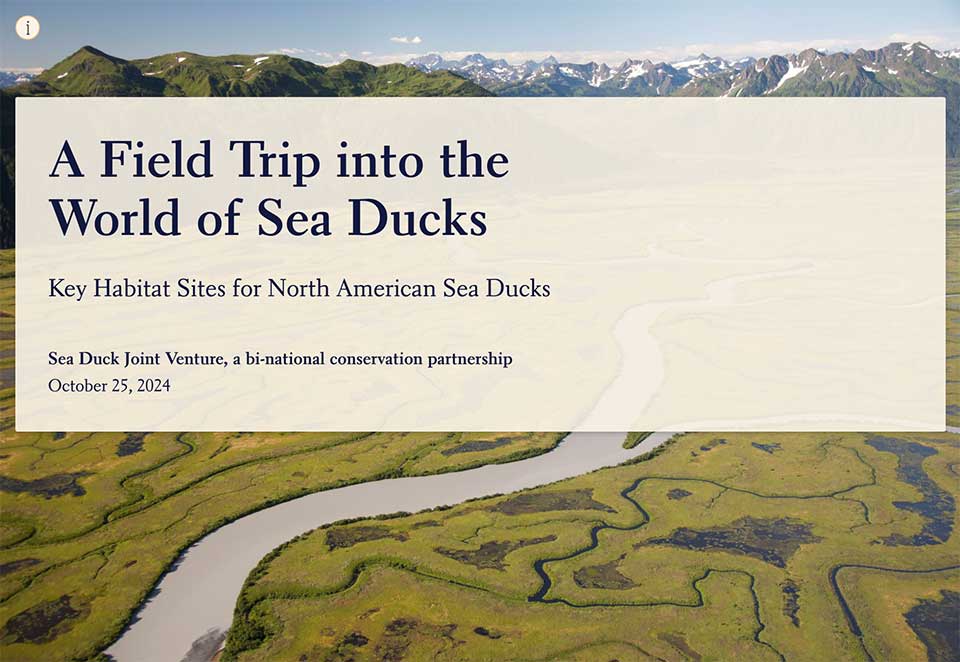
A Field Trip into the World of Sea Ducks
We’re excited to share a new resource giving a peek into the world of sea ducks! Learn about sea ducks through virtual field trips that showcase key habitat sites for species in North America and Russia. The interactive story also highlights SDJV partner research...

SDJV Student Fellowship Feature: Rob Blenk, Use of next-generation genomic sequencing to assess population structure for West Coast populations of Harlequin Duck
Rob holding a female hooded merganser at Bird Haven Ranch in the Central Valley of CA. Rob Blenk is a Ph.D. candidate at the University of California, Davis, working with Dr. John Eadie to inform waterfowl conservation. His SDJV fellowship project focuses on using...
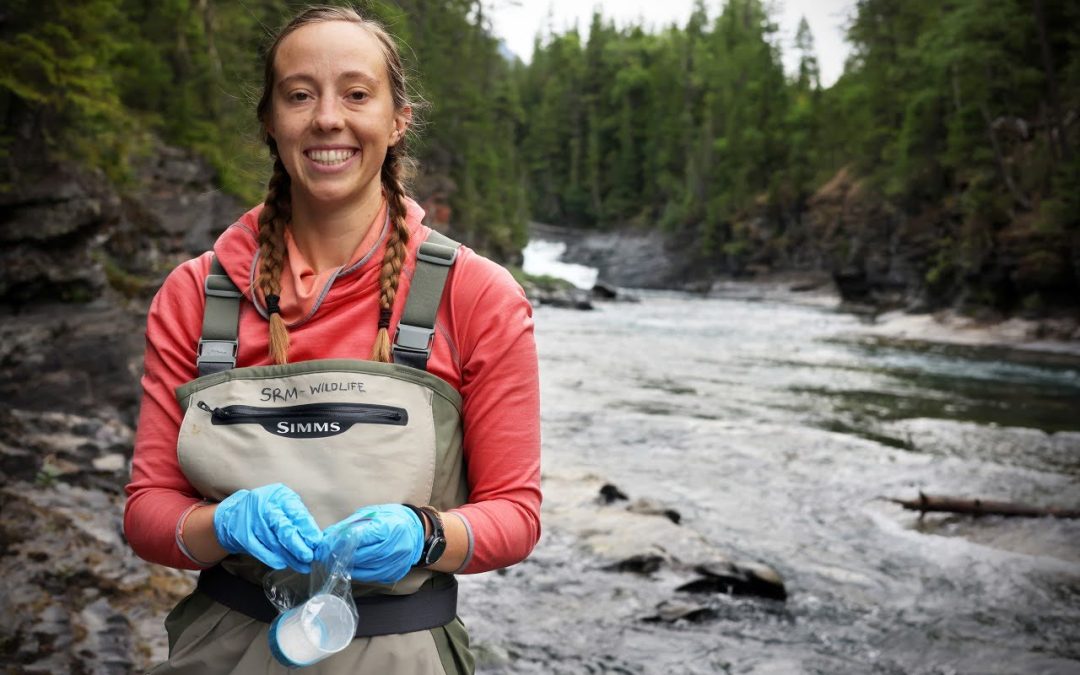
SDJV Student Fellowship Feature: Holli Holmes, Investigating non-invasive survey methods for occurrence and reproductive success of the Harlequin Duck
Holli Holmes is currently a Master’s student at the University of Montana with Dr. Joshua Millspaugh and Dr. Hannah Specht (Montana Fish, Wildlife, and Parks), in the College of Forestry and Conservation where she is focused on Wildlife Biology. Holli completed her...
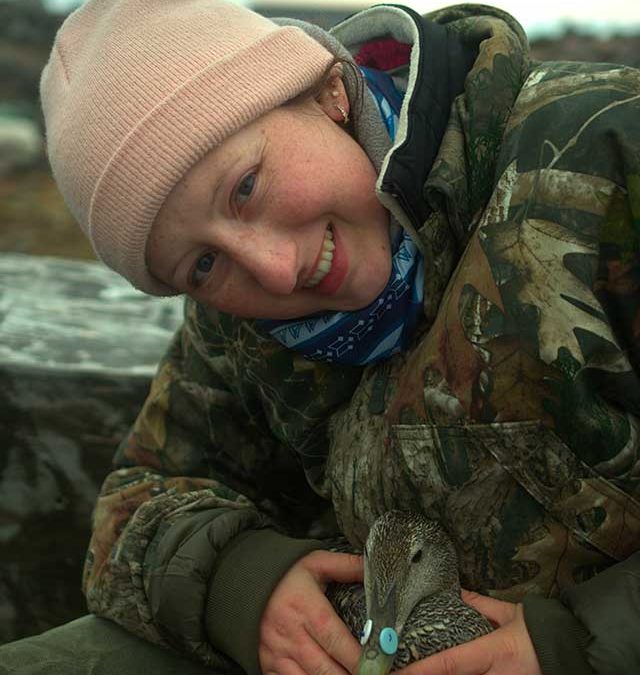
Student Fellowship Feature: Emily Macdonald, Sitting ducks: The vulnerability of nesting eiders to thermal stress in a warming Arctic
Emily Macdonald with a female common eider. Photo: Alysha Riquier Emily is a Master’s student in Integrative Biology at the University of Windsor, Ontario co-supervised by Dr. Oliver Love and Dr. Christina Semeniuk. She completed her bachelor’s degree in Environmental...
